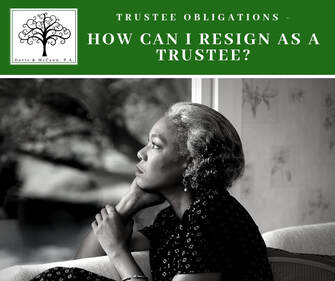 Congratulations on your child’s recent high school graduation! Your graduate deserves acknowledgement for their hard work and the achievements they earned, but let’s not overlook the tremendous role that you, as a loved one, played in their success. Without your support and guidance, they most likely would not have reached this educational milestone. You’ve shared your wisdom and advice, helped them plan their future course. Now it’s time for your child to embark upon their next journey in life: work or continued education. Before you turn your new “adult” out into the world, there is one last thing you should help them complete when they turn 18: estate planning. While you may not think 18 year olds need estate planning, there are three basic documents which every young adult needs: 1. Durable General Power of Attorney The first necessary component of a young adult’s plan is a durable general power of attorney. Through a durable general power of attorney, your teen designates someone to make business and financial decisions. The durable general power of attorney can be set up as either “springing” or “non-springing”. A “springing” durable general power of attorney becomes effective only if your child becomes incapacitated; at that time it “springs” into action. Should your child be involved in an accident or suffer an illness and be unable to pay their rent or other bills, their appointed agent could make those payments and communicate with financial institutions and school officials until such time as he or she recovers. A “non-springing” durable general power of attorney is effective as soon as it is signed. This document might be necessary if you have a child going to school in another country or far out of state. That child is not unable to handle their own matters, but, nonetheless, might need you to assist with some of their affairs for them while they are so far away from home.  Are you an owner in a multi-owner Corporation, LLC, S-Corp, or Partnership? If so, have you given any thought to or prepared a formal business succession plan? One of the more difficult parts of being a business owner can be deciding how to wind up a business or determine how to restructure ownership after an owner wants out or dies. In order to simplify this process, the business owners should insist on having a formal Buy/Sell Agreement signed when they begin their business relationship. A Buy/Sell Agreement is a legally binding contract that stipulates how an owner’s share of a business may be reassigned if that owner dies or otherwise leaves the business. Buy/Sell Agreements often stipulate that the available share be sold to the remaining owners or to the company. Buy/Sell Agreements can take many forms and there are no requirements as to how such agreements must be structured. Terms for such an agreement are negotiated between the owners. Therefore, the advice of an attorney is needed to ensure the best possible exit strategy for all of the owners. Important clauses that every Buy/Sell Agreement should contain: 1. Valuation. The Agreement should include detailed information about your business’ worth. You should consider having it professionally appraised or using a set formula to value the business. You want the valuation provision clearly defined to establish a fair purchase price in the future in order to reduce conflicts. 2. Identify the Parties. The Buy/Sell Agreement must identify all the owners entering into the agreement. 3. Funding the Buyout. You want to make sure the Buyer has the financial ability to fulfill the payment terms of the Agreement. Many Buy/Sell Agreements utilize life insurance policies to ensure the purchase will be adequately funded. Don’t just assume the Buyer will have the cash at the time to purchase the business or that they can borrow 100% of the purchase price.  Acting as Trustee of a Trust can be challenging, and you should understand the responsibilities and duties involved if you are to serve in such a position. Although you may have initially been willing to assume this role, there may come a time when you know you want to resign as Trustee. Perhaps the administration of the Trust is taking more time and energy than you have available, or perhaps your health has deteriorated to the point where you no longer can properly carry out your duties; you don’t need to have a specific reason to resign. However, if you do need to resign as Trustee of a Trust there are a series of steps that should be followed to ensure that you are released, as much as possible, from any further liability. A Trustee resignation should occur pursuant to the terms of the Trust. As long as you are Trustee, you are a fiduciary of the Trust with a duty of loyalty and a duty of care to the Trust and to the beneficiaries. Therefore, you must resign properly in order to ensure that you are not held responsible for problems that may occur due to your resignation or after your resignation. Even if the terms of the Trust seem clear and easy, you should consult with an attorney to ensure you are in compliance with the Trust and the law. To resign as Trustee, the following steps generally must occur: 1. Check the original Trust document to see if there is a successor Trustee named. If there is no successor Trustee listed, a new Trustee will have to be appointed. The Trust may allow you to appoint a successor Trustee, but a thorough examination of the Trust will be required to determine this. If one or more of the original Grantors are still living and capable, they can name a successor trustee, if the Trust is a Revocable Trust. If the Grantor is unable to appoint a new Trustee, the current beneficiaries may be able to appoint a new Trustee. As a last resort, the Court always has the ability to appoint a successor Trustee. Whether these options are available to you depends largely on the terms of the Trust and the type of Trust.  If you’re age 65 or older, issues like retirement and long-term care planning are probably becoming more frequent topics of conversation. Even if you’re not in this population group, chances are you know and care for someone who is. Research from the U. S. Department of Health and Human Services suggests that if you are age 65 or older, you’re most likely going to need long-term care at some point in your life. Unless you are sufficiently wealthy or exceptionally poor, it is wise to do some advanced planning to cope with the increasing health care costs that will accompany long-term care stays. Options you may want to investigate include, but are not limited to: 1. Long-term Care Insurance. The older you are and the longer you wait to obtain insurance, the more expensive it will become. Costs for long-term care insurance (LTCI) tend to be expensive and premiums will most likely rise over your lifetime. With average premiums running at $2,700 per year (according to industry research firm, LifePlans), many seniors may find LTCI too cost prohibitive to be a realistic option. Additionally, your age or current health condition may disqualify you from obtaining this type of insurance. 2. Life Insurance. Some insurance companies offer life insurance with long-term care riders. With this type of policy, your beneficiaries may still receive a death benefit even if you use long-term care rider benefits. With traditional LTCI, there is no death benefit paid to your beneficiaries after your death. 3. Family Members. Your immediate or extended family members may be able and willing to care for you or pay for your health care costs. However, with annual nursing home costs running an average of $89,000 annually, according to a 2018 Genworth study, few families can afford to cover these costs for a year, let alone for multiple years. 4. Medicare. Many people do not realize that Medicare does NOT cover long-term care expenses for patients requiring full nursing home care, except for very limited circumstances and for short periods of time. |
NEWS YOU CAN USEDavis & McCann, P. A., Archives
April 2021
Categories
All
|

 RSS Feed
RSS Feed